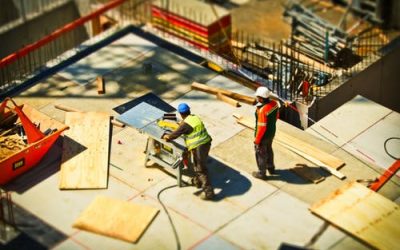Buying a new home is said to be one of the most stressful events in life – and that is without budget-busting house prices or the current cost of living crisis which is pushing mortgage rates sky high! Considering it also costs a whopping £13,184 on average to actually move house in 2022 when you factor in the costs of legal fees, stamp duty, surveys, and removals, it is no wonder that we would want to try and protect ourselves financially when we move house.
Sadly, the risk of a property purchase falling through is something that is on the rise now too, with one in three house sales falling through from April – June 2022 in England and Wales. Reports of down valuations and mortgage rates climbing further in the wake of the recent ‘mini budget’ announcement from the Chancellor at the time, Kwasi Kwarteng, on 23 September makes this a trend that is set to continue.
As a result, more and more people are turning to home buyers’ protection insurance when they move house. This standalone insurance policy is separate from the home insurance policy you take out to cover buildings and contents insurance for your new home and will help to cover the costs of conveyancing fees, surveys, and mortgage lending in the event that your property purchase was to fall through.
So, what are the reasons that house sales fall through? And should you always take out home buyers protection insurance when you decide to make an offer on a new home, or is this just an unnecessary additional expense?
The reasons that house sales fall through
The most common reasons for property transactions to fall through are as follows and can be down to the vendor, the buyer, or circumstances outside of everyone’s control.
- The buyer or vendor changes their mind and withdraws from the sale.
- The vendor gets a higher offer, which is a frustrating situation referred to as ‘gazumping’ and happened to around 31% of UK homebuyers in 2019.
- The buyer is unsuccessful with their mortgage application, or the mortgage lender valuation is much lower than the offer price.
- Delays with conveyancing.
- A survey throws up unexpected results which affect the property’s structural integrity and/or value.
- The buyer is unable to sell their existing property or the vendor’s next property purchase falls through, which breaks the chain.
- The buyer revises their offer to a lower amount (either as the result of the survey, a down valuation from a mortgage lender or to see if they can get a better deal. This is known as ‘gazundering’).
So, is home buyers’ protection insurance worth it?
For a small fee – usually starting at around £60 – you can take out home buyers protection insurance which means you can claim back some of the upfront costs you will have paid prior to exchanging contracts such as your survey, mortgage, or conveyancing fees.
However, whilst home buyers’ protection insurance can certainly offer some much-needed peace of mind, it is important to note that depending on the level of insurance cover you take out, you are unlikely to recoup all the costs associated with your property purchase and there will be caveats.
For instance, unfavourable findings from a survey will not generally be covered on their own if you decide to walk away from the sale unless they have an impact on your mortgage application or valuation. Neither will any deposit you have paid to secure the property, although if your vendor decides to pull out of the sale after you have exchanged contracts – the point at which the sale becomes legally binding – you are within your rights to sue them for breach of contract, and they will also need to return your deposit. Of course, the same is true if you were to pull out of the sale after contracts have been exchanged and you would also forfeit your deposit, so make sure you have done all of you homework and are completely happy to proceed with the purchase, as is, before you sign on the dotted line.
You also cannot retrospectively apply for home buyers protection insurance, for instance if your sale is looking likely to fall through, or has already, or your survey has already been completed. Home buyers protection insurance must be purchased within 7 days of submitting your mortgage application and/or your offer being accepted on a property for it to be valid. You would also struggle to get home buyers protection insurance for a property that has been repossessed or purchased via auction since there is more of a likelihood of these sales falling through.
Ultimately, unlike your home insurance – which is a prerequisite from your mortgage lender when you purchase a house – home buyers protection insurance is completely optional and down to the individual buyer(s) as to whether they deem it necessary. According to the Homeowner’s Alliance though, the average claim amount in 2020 from buyers who took out their home buyers protection insurance was £640. Certainly food for thought then when the cost of insurance is often less than £100.


